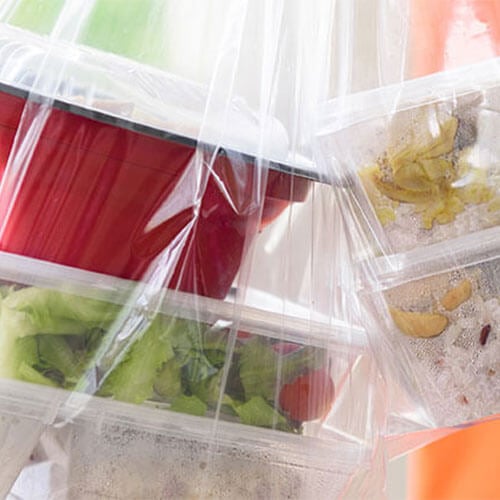For a lot of us who juggle multiple tasks and even wear many hats, having food delivered can be a lifesaver. When you’ve run out of ingredients for a proper meal, have no time to prepare a dish, or simply just want to treat yourself to something delicious, having food delivered just seems to solve these situations.
However, too much could be a bad thing, and we’re not talking about the effects on your finances. A lot of delivered food, especially those from fast food establishments, can put you at risk for certain health issues.
So before you open that app or dial the hotline, consider first the potential health effects of having your food delivered. Learn more about how fast food can affect your well-being, and discover the ideal choices that can provide positive benefits for your health.
Why Is Fast Food NOT a Good Choice?
Fast food’s strength is the minimal preparation time involved, and its weakness the minimal nutritional value provided. We eat food to get calories to make energy, and nutrients to allow our body to function properly. Fast food gives us a lot of the first but little of the second.
The calories in fast food come in the form of refined and processed carbohydrates, added sugars, trans fats, and sodium. These are known to raise your body’s blood sugar and LDL (bad cholesterol) levels, reduce your levels of HDL (good cholesterol), trigger body inflammation and oxidative stress, cause bloating or swelling, and contribute to weight gain. All of these, on top of getting inadequate nutrients, put you at risk for developing:
- Obesity
- Insulin resistance
- Diabetes
- Cardiovascular conditions like stroke, heart attack and/or heart failure
- Mood disorders like depression
- Neurodegenerative conditions like dementia
What You Should Look for When Having Food Delivered
If you plan to have food delivered everyday, it’s best to level up your choices. Ditch the fast food and instead go for delivery services that can offer fresh and meticulously prepared dishes.
Careful consideration can help your body receive the nutrients it needs. Ideally, look for meals that contain lots of fresh fruits and vegetables and are low in carbohydrates, fat, and sugar. If possible, choose high-fiber options too.
A quick search online can lead you to businesses within your area that offer fresh meals daily or weekly. Oftentimes, dishes being prepared can be geared toward specific health and physical goals like weight loss or muscle growth, and portioned according to calorie count. Some businesses also take into consideration your personal preferences or food allergies. Other tips to remember when having your food delivered include:
- Look at the portion size: Make sure the food you’re ordering is enough for yourself and/or other members of your household. If you’re ordering for yourself, choose the portion size that is appropriate for you and your caloric needs. Trying to restrict your calories unnecessarily can sometimes backfire: if you don’t feel full from the meal, you’re more likely to snack later on and snack choices often tend to be unhealthy, too.
- Grilled or roasted, not fried: This is because fried food is cooked in oils with high amounts of fat and can be coated with crumbs (a source of carbohydrates). If possible, choose grilled or roasted options with chicken breast (without the skin), lean beef, or lean pork.
If you have additional concerns on the negative effects of constantly eating fast food, or ideal calorie intakes for your specific age and health status, talk to a doctor or nutritionist right away. These professionals may guide you towards the right direction by helping you understand the basics of a healthy diet while addressing any issues that you may be at risk for.
References:
https://health.clevelandclinic.org/heres-how-fast-food-can-affect-your-body/ https://www.healthline.com/health/fast-food-effects-on-body#sugar-and-fat https://www.healthline.com/nutrition/why-trans-fats-are-bad
https://www.ncbi.nlm.nih.gov/pmc/articles/PMC4772793/
https://www.helpguide.org/articles/healthy-eating/healthier-fast-food.htm
The Link Between Fast Food and Depression Has Been Confirmed (bjorklundnutrition.net)
An extra burger meal a day eats the brain away – Neuroscience News








